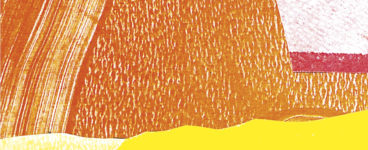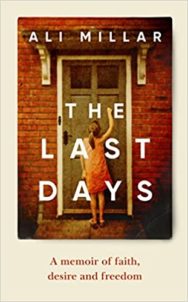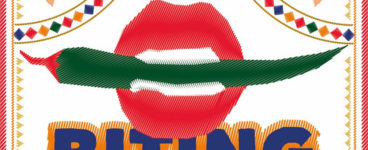‘The real skill of this memoir is that the reader can see this wider picture even as Millar describes feelings which often might seem to contradict it.’
Ali Millar waited for Armageddon. Born into the Jehovah’s Witnesses in the borders, her memories are populated by the vivid images about the pending Second Coming she heard of since birth. David Robinson dives into her memoir The Last Days, exploring faith, desire and freedom, in this month’s Books from Scotland review.
The Last Days
By Ali Millar
Published by Ebury Press
Like Alice’s White Queen, the Jehovah’s Witnesses have always struck me as people who would find it easy to believe six impossible things before breakfast. Because of that, I used to imagine that abandoning their particular version of Christianity would be the simplest thing ever. Leave the Jehovah’s Witnesses, I thought, and suddenly the world would snap back into the sharp focus of everyone else’s everyday reality. You’d no longer be an outlier. You’d be free to accept a lifesaving blood transfusion, to celebrate Christmas, study ‘worldly’ subjects like philosophy, and say cheers before having a drink. Best of all, you needn’t worry about clearing bodies from the streets in the imminent Great Tribulation.
So, when I was asked to review Ali Millar’s memoir The Last Days, which charts her childhood and adolescence as a Jehovah’s Witness in an unnamed Borders town and her subsequent rejection of her faith, I suspected I knew its story already. And frankly, because Witnesses believe that coerced worship is unacceptable to God, walking away from Kingdom Hall didn’t seem that big a deal. I was, it turns out, Very Wrong About This Indeed.
Both my parents were convinced and lifelong Christian Scientists, another (let’s be kind) esoteric American religion. They didn’t believe in doctors, medicine, hospitals: all you had to do if you fell ill was to ‘know the truth’ – that because you were created in the image and likeness of God, and because God is perfect, you couldn’t possibly have cancer, a dodgy heart or whatever ailed you at the time. Every Wednesday evening, they held ‘testimony meetings’ which mainly consisted of members of the congregation standing up and recounting how they’d done just that.
So when it comes to being dragged along as a child to ultra-nonconformist worship, I’ve got form. I’ve seen too how it can give a purpose in life to decent people who have been let down by the world, who want help to cope with fear or pain and who aren’t given to questioning. The difference between Millar and me is that, as soon as I could think for myself, I was embarrassed by my parents’ very real and unswerving faith and – to their enormous credit – they didn’t stand in my way when, as a 12-year-old, I stopped being a Christian Scientist. Truth to tell, I was never much of one to begin with.
Yet when I read Millar’s memoir, I soon realised that the small similarities with my own childhood were drowned out by the howling differences. By the time I put it down, I was positively raging on her behalf at the way she was treated by the elders of her congregation, interrogated in her home about her sex life as if by seventeenth century witch hunters. Just as damnably, their religion has cut her off, perhaps forever, from her mother’s love – to which her book is a kind of memorial.
It is, then, a powerful story and made even more so by Millar’s ability to convincingly describe both her apocalypse-tinged childhood and her anorexia-ridden adolescence. I’m no psychiatrist, so I can’t say whether the two are related, but it certainly sounds probable: in a chaotic, random world, anorexia might indeed seem like an attractive way of taking back control, even if it is only of one’s body. Because this world, Witnesses are taught, is little more than a demonic cesspit, and the five-year-old Millar learns that demons can be found in such unexpected places as second-hand books or records (on hearing this, her mother takes all her records outside the house and smashes them). Jehovah, meanwhile, seems to be letting Satan have free run of the Earth – you’ve only got to watch the news – and in most of the five-times-a-week meetings at Kingdom Hall they are told that the cataclysmic Great Tribulation is getting ever nearer. The nine-year-old Millar starts to worry that she is getting too big to fit in her Armageddon hiding place under the bed.
There’s something wrong about her, she feels. Something broken. It’s like her life is a glove that doesn’t fit. The teenage years roll in, but anorexia drives out a burgeoning interest in boys. By the time she’s fifteen, she weighs five stone and her skin is yellowing. She’s off school for a year. Anorexia, you start to realise, is a bit like her faith in Jehovah: a matter of following the doctor’s orders but not really believing them, being deceitful to reassure those who love her so they’ll leave her alone. And all the time, wasting away in both body and soul.
The real skill of this memoir is that the reader can see this wider picture even as Millar describes feelings which often might seem to contradict it. This was true even at the start of the book, when even as a child in love with the idea of a heaven in which she’ll be able to pat lions on the head, she also registers that the people who don’t turn their backs on her mum’s doorstop evangelising tend to be the most desperate and confused. There’s a subtlety about how she mentions this though: any more than a hint and it would sound like an adult rationalisation rather than anything a five-year-old might feel.
That balance runs throughout the book. Later on, there are moments when the secular world seems about to take over: John Peel, Catcher in the Rye, the first fumblings of sex, parties with boys, Malibu and Newcastle Brown. But then, because a real, lived life is chaotic, messy and unpredictable, and rarely runs straight, those roads aren’t taken. Her student days – the time of maximum freedom for most people – lead to marriage to a would-be Witness elder and motherhood. There even are times when a future as a Watchtower-toting Stepford wife looks a distinct possibility.
The end of Millar’s faith comes in a truly appalling scene in which three elders (all men, naturally, as Jehovah seems to regard women as second-rate) quiz her about her premarital sex life. On a scale of one to five, she is asked, how much pleasure did she get from heavy petting and what did it consist of? Somehow the fact that this is in her own Edinburgh living room – or in the 21st century come to that – makes it seem even more grotesque. Believe me, it gets even worse. Yet still Millar wants to stay loyal to her faith and to make her marriage work. ‘[Actually,’ one of the elders says, ‘it’s up to your husband to decide what happens next. It’s not your decision to make.’
They are wrong about that. Because by now Millar has found within herself some talent they can’t take away. Something she can use to explain why she has broken away from the faith that sustained her mother through her own hard adult life bringing up two daughters on supplementary benefit, even though the cost of doing so is being disfellowshipped – ignored, cut off, shunned – by her mother as well as by all other Witnesses. She can come through the looking glass of organised religion and write a memoir as good, and as consistently gripping, as this.
The Last Days by Ali Millar is published by Ebury Books, priced £12.99.
ALSO IN THIS ISSUE

 Free to Go
Free to Go
‘Between mugs of restorative coffee, I turned to what I knew: my own memories of open borders, when …














